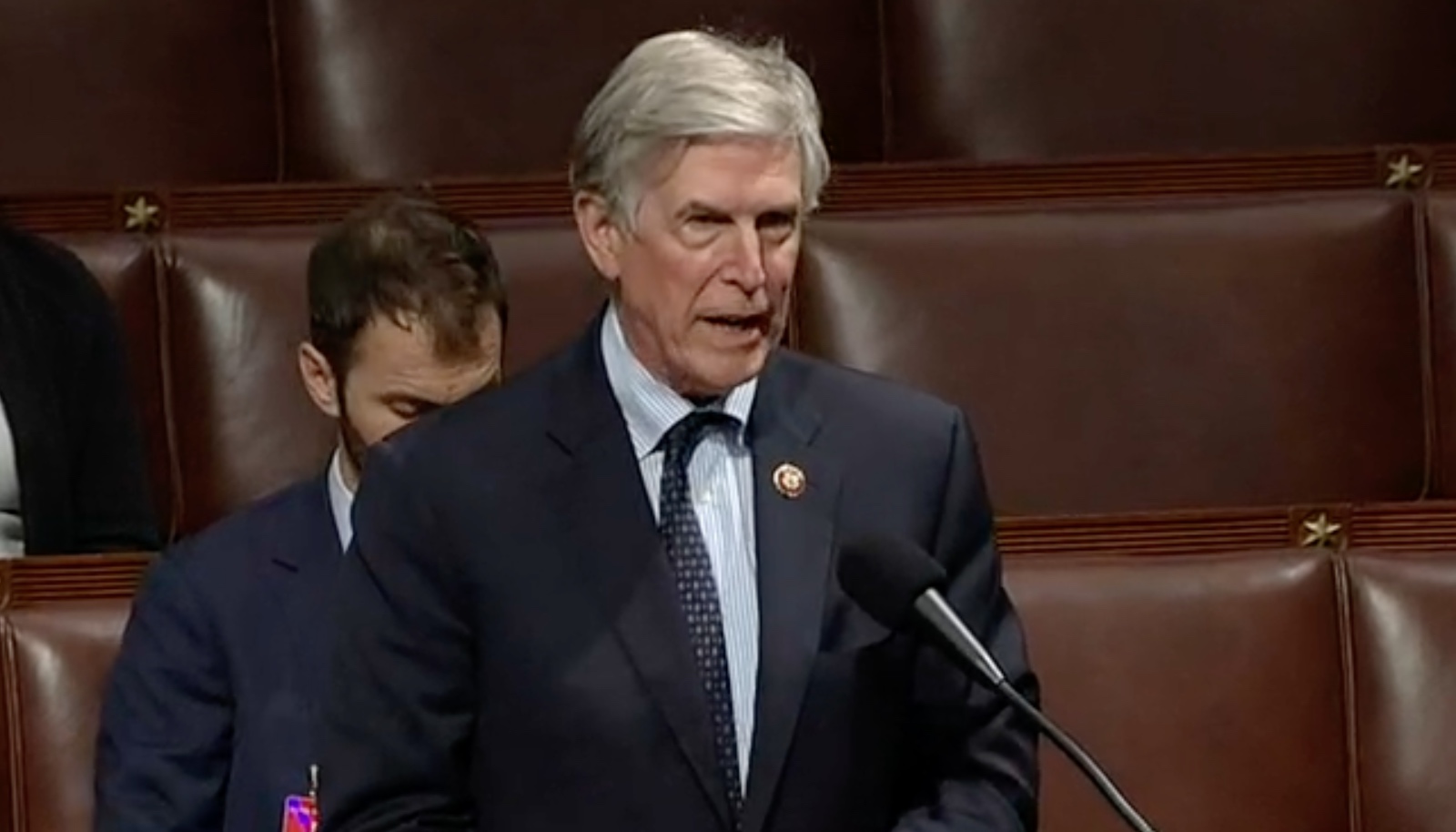Products You May Like
WASHINGTON — A bill intended to reform satellite spectrum licensing regulations failed to pass the House July 25 after some members objected to provisions they claimed gave the Federal Communications Commission authority to regulate space safety.
The House debated H.R. 1338, the Satellite and Telecommunications Streamlining Act, under suspension of the rules, a procedure that limits debates and amendments but requires a two-thirds majority for passage. The bill, though, fell short of that threshold, with 250 votes in favor versus 163 votes against. One member voted present.
The bill was intended to improve the licensing process for satellite systems at the FCC, a modernization that the bill’s advocates said was long overdue and necessary to ensure American competitiveness in the satellite communications market. It would have set time limits on the FCC’s review of satellite licenses and enabled expedited reviews of minor license modifications. The House Energy and Commerce Committee favorably reported the bill on a unanimous vote in March.
However, the leadership of House Science Committee opposed the bill because of provisions regarding regulation of space debris and space traffic management. They pointed to language in the bill that directed the FCC to establish “specific, measurable, and technology-neutral performance objectives for space safety and orbital debris.”
In a “Dear Colleague” letter circulated to House members ahead of the vote, the bipartisan leadership of the full committee and its space subcommittee argued that the FCC would be overstepping its authority by attempting to regulate space safety.
“Congress has never explicitly granted FCC authority to regulate in these areas, and doing so now is a significant policy decision,” the letter stated, adding that the FCC also lacked expertise to do so. “Assigning FCC responsibility to both create these rules and assess an applicant’s compliance would divert resources from FCC’s primary mission of assessing the applicant’s spectrum use.”
Backers of H.R. 1338 argued during debate about the bill that language added to it would prevent the FCC from becoming a space safety regulator. They noted the bill now included “rules of construction” that stated the bill did not give the FCC authority to provide space situational awareness data or to “establish requirements for or regulate space safety and orbital debris.”
“The Energy and Commerce Committee wants to ensure that the FCC does not become a space traffic cop,” said Rep. Bob Latta (R-Ohio), chair of that committee’s communications and technology subcommittee, citing the rules of construction added to the bill.
“It does not expand the FCC’s jurisdiction over the space industry. Instead, it sets new rules of the road with respect to the licensing of electromagnetic spectrum,” said Rep. Frank Pallone (D-N.J.), ranking member of the House and Energy and Commerce Committee, saying later that he did not believe the bill impinged on the jurisdiction of the House Science Committee.
The only member to speak against the bill in the floor debate was Rep. Don Beyer (D-Va.), a former chair of the House Science Committee’s space subcommittee. He noted that the bill would give the FCC the ability to “do its own thing” in regulating space safety even as efforts continue elsewhere in government focused on the Commerce Department. “For something as important as space safety and orbital debris, this is a troubling thought.”
The current leadership of the House Science Committee did not get an opportunity to speak about the bill during that debate, although it appeared that Rep. Frank Lucas (R-Okla.), chair of the committee, was trying to be recognized at times. In a statement after the floor debate, but before the roll call vote, he said that he supported most elements of the bill other than the space safety provisions.
“We absolutely should support the growing commercial space sector by seeking ways to streamline and quicken licensing processes for commercial space operations,” he stated. “However, this bill goes beyond that and also includes a significant and unprecedented grant of authority to the FCC” on space safety.
The science committee also released a letter from three advocacy groups — the Space Frontier Foundation, Beyond Earth Institute and National Space Society — who were opposed to the space safety language in the bill. “We do not believe that the FCC has (or should have) authority to regulate space commerce generally, nor does it have the expertise to do so,” the letter, to the leadership of the energy and commerce committee, stated.
The House did pass a second space-related spectrum bill July 25. H.R. 682, the Launch Communications Act, would direct the FCC to set up regulations that would give access to several spectrum bands for launch vehicles communications. It would replace existing practices where launch providers seek temporary authorization for launch communications in those bands.
The bill passed on a voice vote without any opposition during the brief floor debate. “No space launch should be threatened because approval for spectrum access is caught up in a bureaucratic delay,” Latta said.
